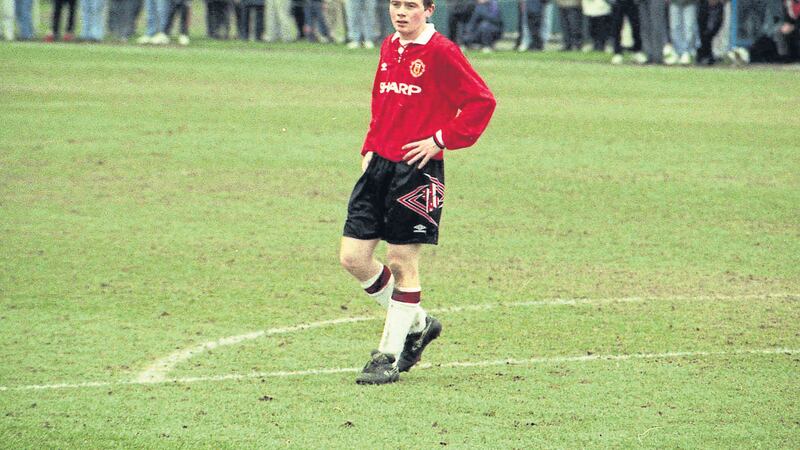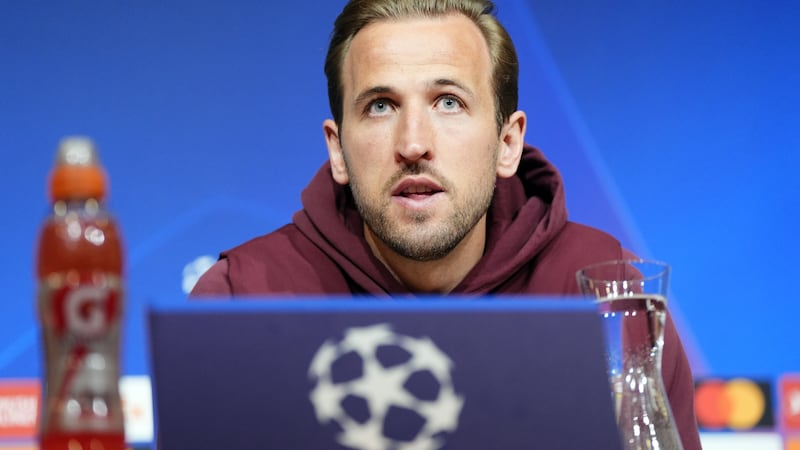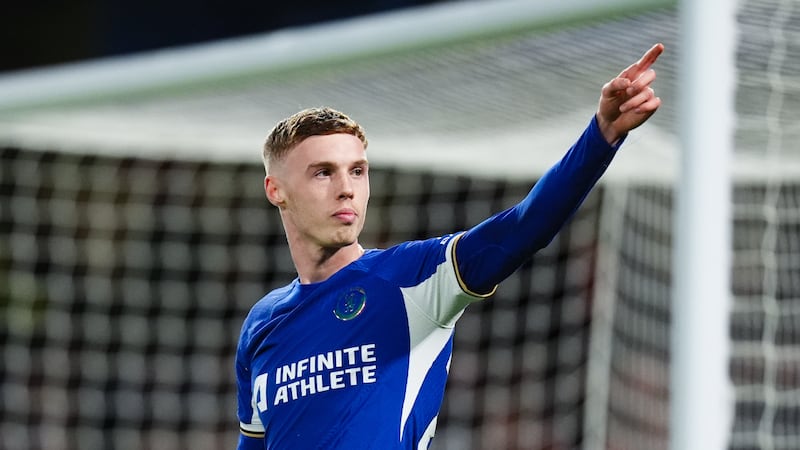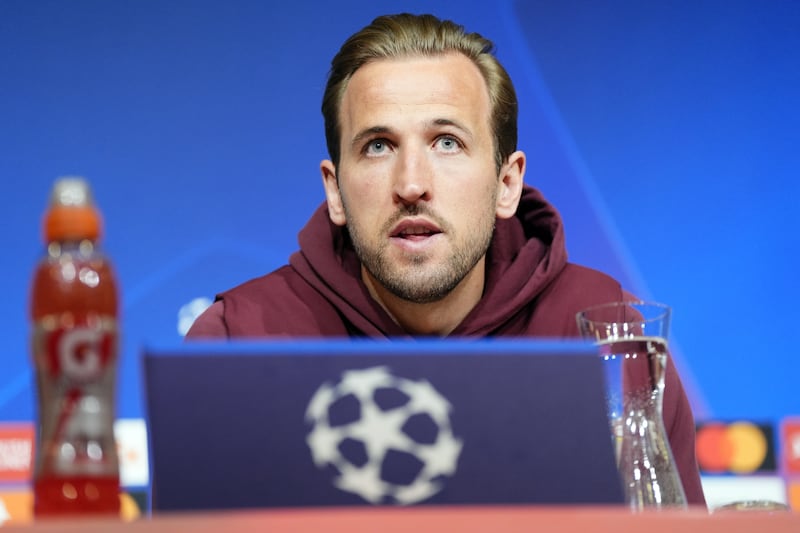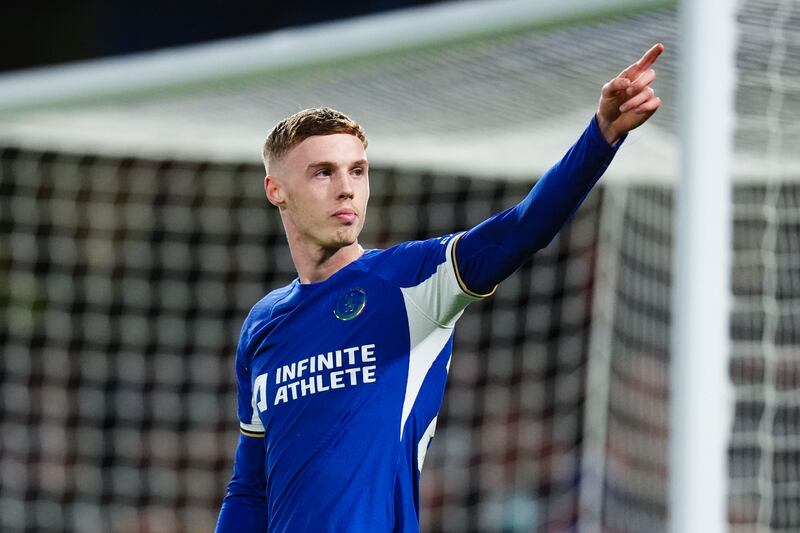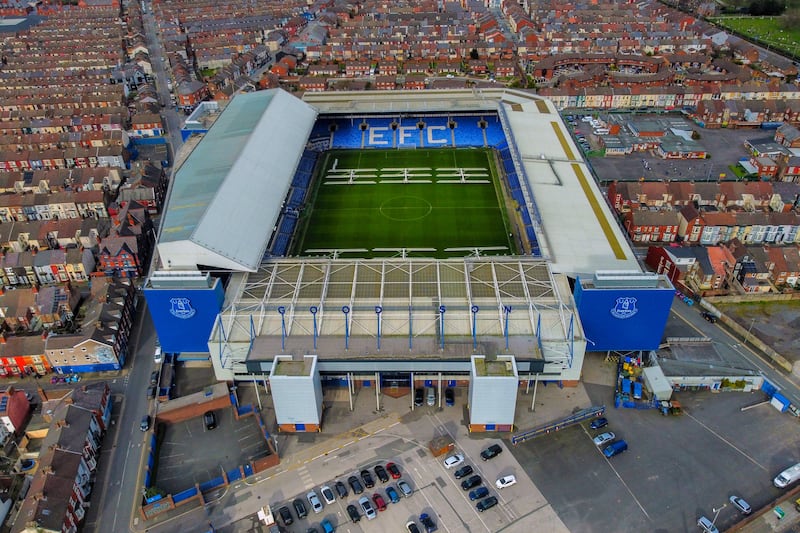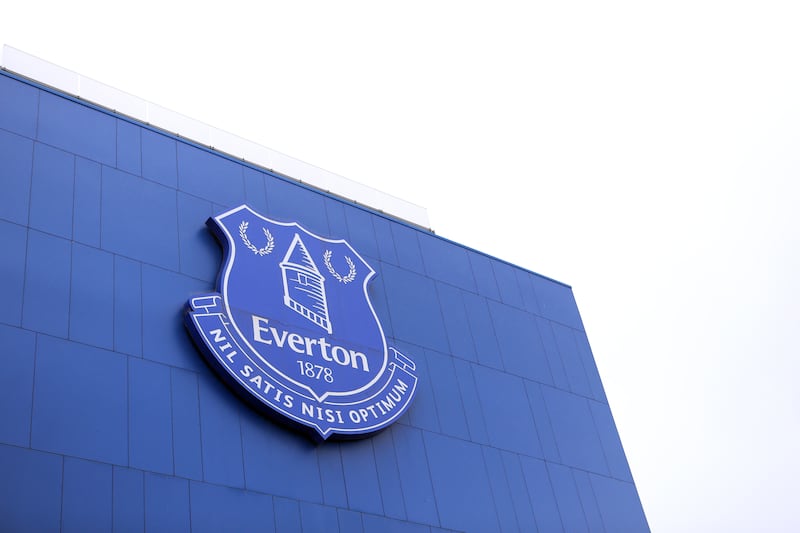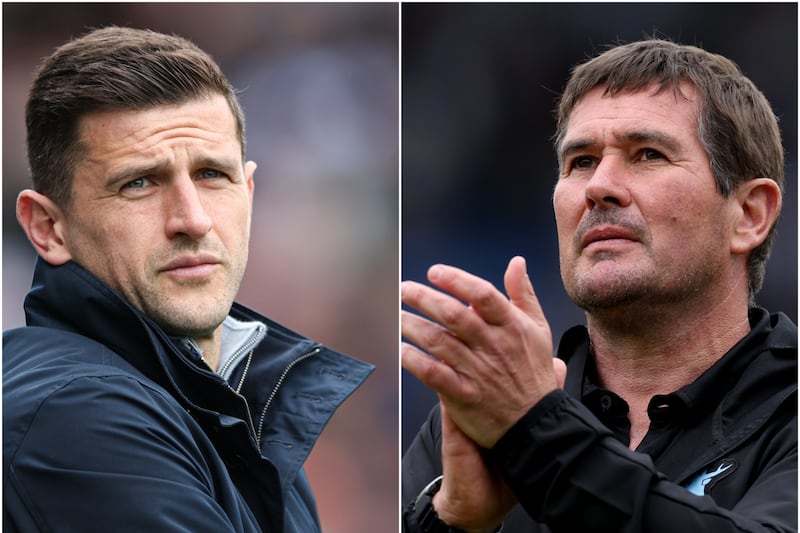LIFE is full of dreamers looking wistfully back on what they ‘could have been’. It’s desperately sad that Adrian Doherty can’t do that – but he really should have been a soccer superstar.
The Strabane lad was a footballing prodigy, a right winger at least the equal of his contemporary at Manchester United, Ryan Giggs, arguably better.
Until injury intervened.
Doherty was on the brink of making his Old Trafford debut at the age of 17 when he suffered knee damage playing for the club’s ‘A’ team. Giggs got the nod instead – and the rest is history.
“That should have been me,” Adrian said to the Derry Journal’s Artie Duffy at the time of Giggs’s debut – but even after the end of his Old Trafford career Doherty never exuded any bitterness or regret.
Now, although Adrian’s tale has been touched on in several articles in recent years, this terrific book by Oliver Kay, chief football correspondent of The Times, gives him his rightful place in history.
The title is fitting in several ways. Adrian was a Bob Dylan fanatic, probably more interested in music than football. He died a day before his 27th birthday, having been in a coma for a month after falling into a canal in The Hague one May morning in 2000.
Forever Young could almost have been written for Adrian. Played at his funeral by his younger brother Peter, some of the lyrics have deep poignancy in the context of a life cut tragically short:
May your feet always be swift…
May your heart always be joyful
May your song always be sung
May you stay forever young.
The swiftness of Adrian Doherty’s feet and the joyfulness of his heart are major aspects that people remember about him.
The man who brought him to Manchester United, their then-manager Alex Ferguson, told Kay: “Adrian was not your typical football-mad lad… On the pitch he was a fast and skilful player who was excellent with both feet.
“Adrian was a complete natural with a football. It came easily to him. Sadly just before Adrian was to make his debut… he sustained a serious injury.”
Even strict disciplinarians such as Ferguson and his assistant Archie Knox allowed Adrian leeway over his occasional lateness and scruffy attire.
He was ‘Doc’/ ‘The Doc’, but one whose role was to inflict metaphorical pain on full-backs with his skill and searing pace. Those full-backs literally gave Adrian plenty of pain - when they could get close to him – but he kept coming back at them. His bravery as a footballer – like George Best – is regularly mentioned.
Indeed Matt Bradley, who managed him at Moorfield Boys’ Club in Derry, and ensured Adrian went to Old Trafford by writing to Ferguson just before Arsenal were about to sign him up, insisted: “He was, and I mean this, the nearest thing I have seen to another George Best.”
A few lads from Northern Ireland have been given that description, especially if they went to Old Trafford, but Doherty truly merited it. Ferguson told Adrian’s father Jimmy, who had played for Derry City in the ’60s:
“When we look at young players we assess them technically in different areas – speed, bravery, strength, technique, vision and so on.
“Adrian ticks every box, which is very rare… we feel he would be perfect for Manchester United. We think he would have an excellent chance here.”
In a match programme in October 1987, Fergie name-checked Adrian, then just 14, describing him as “like greased lightning. He plays wide on the right and he’s a very exciting discovery”.
His siblings recall that he took his character onto the pitch. Older brother Gareth said: “Adrian was head-first into everything – spontaneous, fearless, full of mischief.” His sister Ciara recalled how he was really competitive at sport, hated losing.
His control of a football was remarkable, honed by hours of dribbling around cans. Friends remember how he was sent off in a school Gaelic football match at St Colman’s High School in Strabane by his own teacher for refusing to use his hands.
His talent took him from Mourne Santos to Melvin to Moorfield to the biggest ‘M’ club of them all, Manchester United. At 15, he told his father of his ambition to be the best player in the world in five or six years’ time.
Yet although Adrian was a Red Devil from boyhood, as Fergie suggested, he was much more than ‘merely’ a brilliant footballer.
He used his first win bonus from inclusion in the first team squad (at the age of 16) to buy a typewriter – in order to start writing a novel. In an interview with a Manchester United fanzine, he stated that his ambition was to ‘finish my book’.
Given his love of music, he bought a guitar in Manchester. Told he couldn’t sing, he went and took lessons. He wrote songs, poems, busked and played in pubs and clubs.
Leo Cussons, a friend from the music scene, called Adrian “one of those extraordinarily talented individuals you come across very rarely in life”.
Childhood friend Niall Dunphy says: “He was a really funny guy. Intelligent, interesting, kind, caring and, yes, really, really funny.”
Still, it’s his football ability for which he’ll mostly be remembered.
Tony Park, a chronicler of United’s youth teams, described ‘Doc’ as “a bit of Ryan Giggs, a bit of Andrei Kanchelskis and a bit of Cristiano Ronaldo, all rolled into one. He was unstoppable when he got going”.
A coach at the club told Park the three certainties to make it were Doherty, Giggs, and Scholes: “Giggs has a left foot and great pace. Scholes has two great feet. Doherty has two feet and great pace.”
Gary Neville recalled that “he had that Messi-like ability to have the ball at his feet, with a low centre of gravity, and then just accelerate away with the speed of his feet and a change of direction. He had the quickest feet. You know like Messi has that tight control? It’s that style of play”.
Ferguson thought so highly of him he offered Adrian a five-year deal, which Kay points out was ‘the longest and most handsome contract the club had ever offered a player before his 17th birthday.’
Adrian being Adrian, he suggested signing for one year, as he wasn’t sure he wanted the regimented life of a professional footballer. He reluctantly accepted a three-year deal.
Much of the praise for him is contemporaneous, not retrospective. In 1991 Paddy Crerand labelled him “like a slightly taller version of Jimmy Johnstone…I’ve no doubt in my mind that he’s a definite first-teamer”.
Fergie told Artie Duffy: “Adrian has got great potential and could go all the way… I’m sure he’ll make it.”
Then came a proximal tear of the anterior cruciate ligament in his right knee; it’s not clear if that damage occurred in February 1991 and was not diagnosed at first, or whether it resulted during a comeback attempt.
The timing of his absence certainly was almost as bad as the eventual serious nature of the injury, only a week before Giggs was given his senior debut.
Adrian battled back from injury, trying to regain full fitness for two years, but the knee kept breaking down. Eventually, in the summer of 1993, he was released by Manchester United.
The club might – perhaps should – have invested more time and money in him but a crop of extremely talented youngsters were following Giggs towards the first team: the Nevilles, Scholes, David Beckham, Nicky Butt, and Ben Thornley, among others.
Another flying right winger from Northern Ireland broke through for the Red Devils in January 1993, namely Keith Gillespie, who recalls: “‘Doc’ was delighted for me. There was no jealousy. That shows the character of the guy.”
Later, though, Gillespie adds: “I don’t actually remember ‘Doc’ leaving. It seems he just slipped out of the back door. And then he was gone.”
His father and brother Gareth were understandably unhappy about his treatment by Manchester United, but there were no recriminations or resentment from Adrian.
He attempted a comeback to the game with Derry City, whose club historian Eddie Mahon summed him up well as “very ethereal – almost not of this world. His interests were on a higher plane than playing football”.
Having gone to New York for around a month in May 1992 with his pal Cussons, aiming to make it as a singer-songwriter, he didn’t go far from Manchester at first after leaving Old Trafford, working in a chocolate factory in Preston.
Another Ulsterman, Pat McGibbon, remembers a return visit from Adrian to his Manchester digs, and his sunny nature: “That was the thing with ‘Doc’. He always seemed happy.” His brother Gareth says that “he just got on with life and enjoyed it”.
A move to Galway followed, doing various jobs, and his friend from there, Kathy Maloney, commented: “He wasn’t interested in material gain or getting recognition. But whatever he did, he would take great pleasure from it and he liked to master it. The main mission in his life was to achieve enlightenment.”
A voracious reader, he continued to play music and, simply, enjoy a quiet life. His itchy feet then took him to work in the Netherlands, where he tragically died.
Despite hurtful rumour and innuendo, the Dutch authorities confirm in the book that Adrian’s death was the result of an accident, with no drugs and little alcohol in his system; sadly, Adrian had never learned to swim.
Sometimes such people seem too good to be true, but Giggs is among more than 100 interviewees who have nothing but good to say about Adrian Doherty.
Adrian didn’t quite fit in with most modern-day footballers, but he stood out on the pitch.
Giggs confirms the level of Adrian’s footballing ability, declaring that “once he was out on the pitch he was incredible. He was the quickest I had ever seen and he was so brave as well. He was an incredible talent…
“‘Doc’ always seemed to be able to handle any situation… It looked like it was all instinctive, but it’s a bit like Wayne Rooney, where, yes, he’s a street footballer, but you know he’s also a real natural with a real football brain. ‘Doc’ was the same.
“None of us could really say we knew him. We just knew him as a lovely lad and an incredible talent.
“When I think about ‘Doc’, I feel a great sadness that he wasn’t able to give the pleasure he would have given to his team-mates, the fans and himself. People would have loved watching him.
“But there’s also a happy memory of the talent he had and the character he was – a freakish talent, a unique character, a boy who would just go out and play.”
Whether that was football or music, Adrian Doherty playing made people smile and laugh. He wanted football to be fun, filled with flair, not functionality.
You don’t have to be a Bob Dylan fan from Tyrone who also wrecked his right ACL at the age of 17 (ending no hopes whatsoever) to empathise with Adrian Doherty’s story. You don’t even have to be a Manchester United fan.
Adrian Doherty’s tale is both heartbreaking and uplifting. He lived life positively, enjoyed himself; he was clearly someone you would have loved to have had as a friend.
Oliver Kay’s brilliant book, full of touching stories and insights resulting from a phenomenal amount of interviews with friends, family, and Manchester United legends, will help keep alive the memory of a tremendous talent, on and off the pitch. Gone, but far from forgotten.
Forever Young: The story of Adrian Doherty, Football’s Lost Genius by Oliver Kay (Quercus Books, £20)
Oliver Kay will sign copies of Forever Young at Eason in Derry’s Foyleside Shopping Centre, next Tuesday, May 24 from 2pm, and
at Eason, Royal Avenue, Belfast, from 1.30pm next Wednesday,
May 25.
